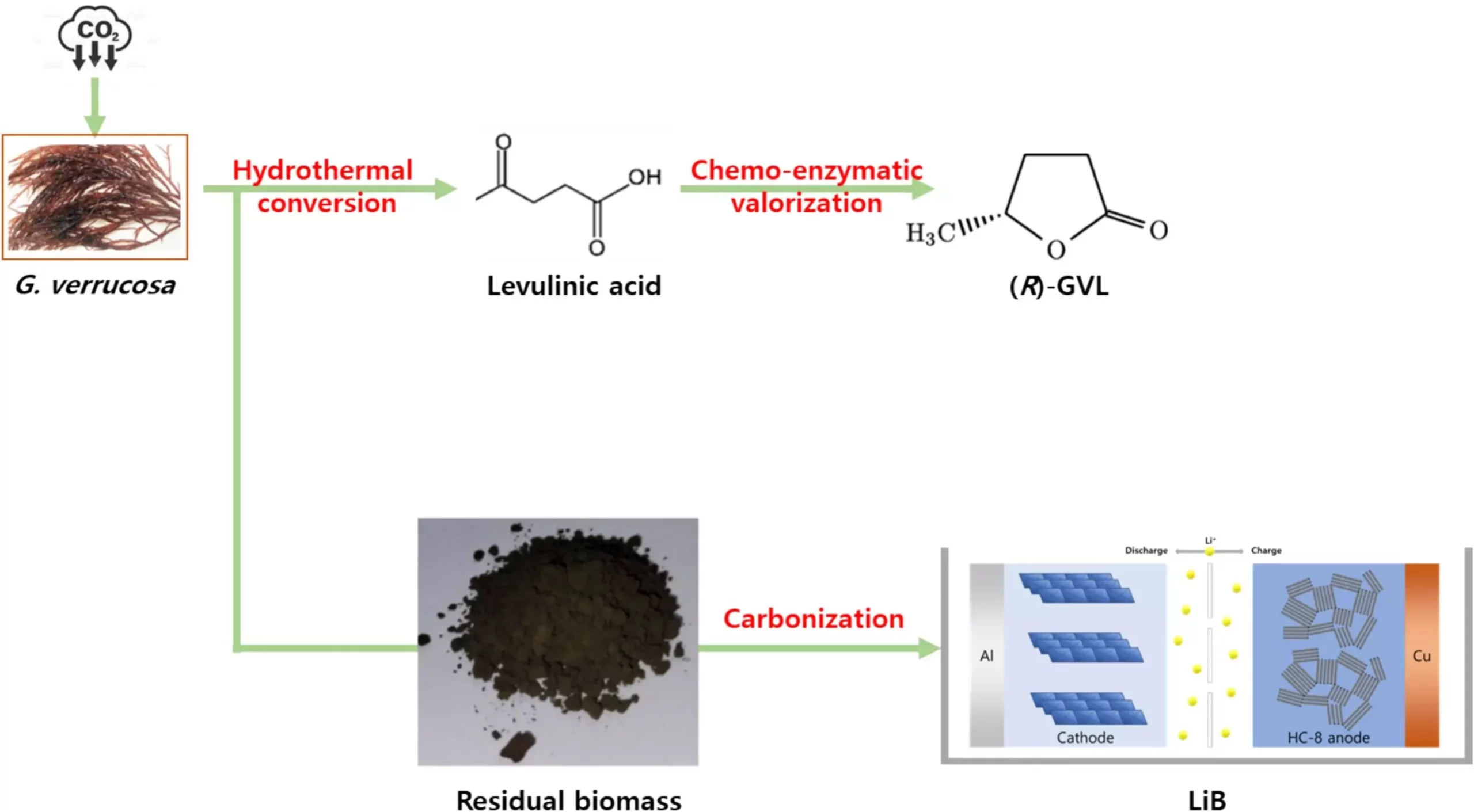In a world increasingly driven by the need for sustainable energy sources, recent advancements in biorefineries have unlocked the potential of commonly overlooked marine resources. A revolutionary research initiative, spearheaded by Dr. Kyoungseon Min’s team at the Gwangju Clean Energy Research Center under the Korea Institute of Energy Research, has demonstrated the feasibility of converting edible seaweed species like Kkosiraegi into high-performance energy products, specifically bio-aviation fuels and lithium-ion battery components.
Traditional petroleum-based fuels have long dominated the energy landscape, contributing significantly to greenhouse gas emissions and environmental degradation. However, the integration of seaweed into the energy sector presents a compelling alternative. Seaweed is abundant, grows rapidly, and can be harvested sustainably, positioning it as an ideal candidate for biofuel production. In fact, utilizing seaweed for bio-aviation fuels could reduce emissions by up to 82% compared to conventional fossil fuels. This shift is projected to reshape the aviation fuel market, with bio-aviation fuels anticipated to capture 35% of the market share by the year 2070.
The research findings, recently published in the Chemical Engineering Journal, showcase a pioneering methodology for synthesizing (R)-gamma-valerolactone (GVL), an essential precursor for bio-aviation fuels, straight from seaweed biomass. This is especially crucial given the increasing scrutiny of the aviation sector’s ecological footprint.
Current biofuel production processes often rely on complex techniques involving microbial fermentation that can be laborious and inefficient. The standard sugar-to-jet processes require substantial pretreatment and high costs due to the necessity for high-pressure hydrogen. The efficiency of such methods is questionable; research indicates that they yield only about 15% of usable precursor from the total fermentable sugars processed. Thus, there is a pressing need for innovation to enhance output and decrease production complexity.
In response to these challenges, Dr. Min’s team has devised a groundbreaking levulinic acid-based approach that simplifies the reaction pathway. By employing a straightforward acid treatment, seaweed can be transformed into levulinic acid, which can then be converted into (R)-GVL through a uniquely engineered enzyme. This method vastly improves production efficiency—potentially increasing output tenfold compared to conventional methods.
The implications of producing (R)-GVL extend far beyond the realm of aviation fuel. This compound holds significant value in the pharmaceutical industry as a precursor for medication development, particularly for conditions like hypertension. However, the traditional methods of creating GVL often yield a mixture of optical isomers, which limits its applicability in high-value markets such as pharmaceuticals and bioplastics. This newly developed enzymatic process resolves this limitation, producing highly selective (R)-GVL with unprecedented purity—over 99.999%.
This breakthrough not only enables the pharmaceutical sector to tap into a new raw material stream but also sets the stage for the potential integration of marine resources into healthcare innovations.
Moreover, the research does not stop at fuel production; it extends to the intelligent utilization of residual biomass from the seaweed processing. The leftover material following levulinic acid extraction has been repurposed as anode material for lithium-ion batteries, showcasing a holistic approach to resource management. Through carbonization, the Kkosiraegi residue is transformed into “hard carbon,” an effective anode material. The detailed analysis of its properties reveals promising results, indicating substantial potential for the development of next-generation energy storage devices.
As Korea looks to its rich coastal resources, the implications of this research are monumental. It encompasses a comprehensive strategy to utilize seaweed in multifaceted applications spanning multiple industries, paving the way towards sustainable development goals. Dr. Min emphasizes the geographic advantages of Korea in harnessing these marine resources, which further illustrates the potential for regional leadership in sustainability efforts.
This innovative approach to seaweed-based biofuel production epitomizes a significant shift towards renewable energy sources and resource optimization. The collaborative efforts between academic institutions and research centers underscore a collective commitment to addressing the pressing need for reduced environmental impact through sustainable practices. With ongoing advancements in marine biomass technologies, the future looks bright for both the energy and pharmaceutical sectors, promising a new era where sustainability and industry converge.

